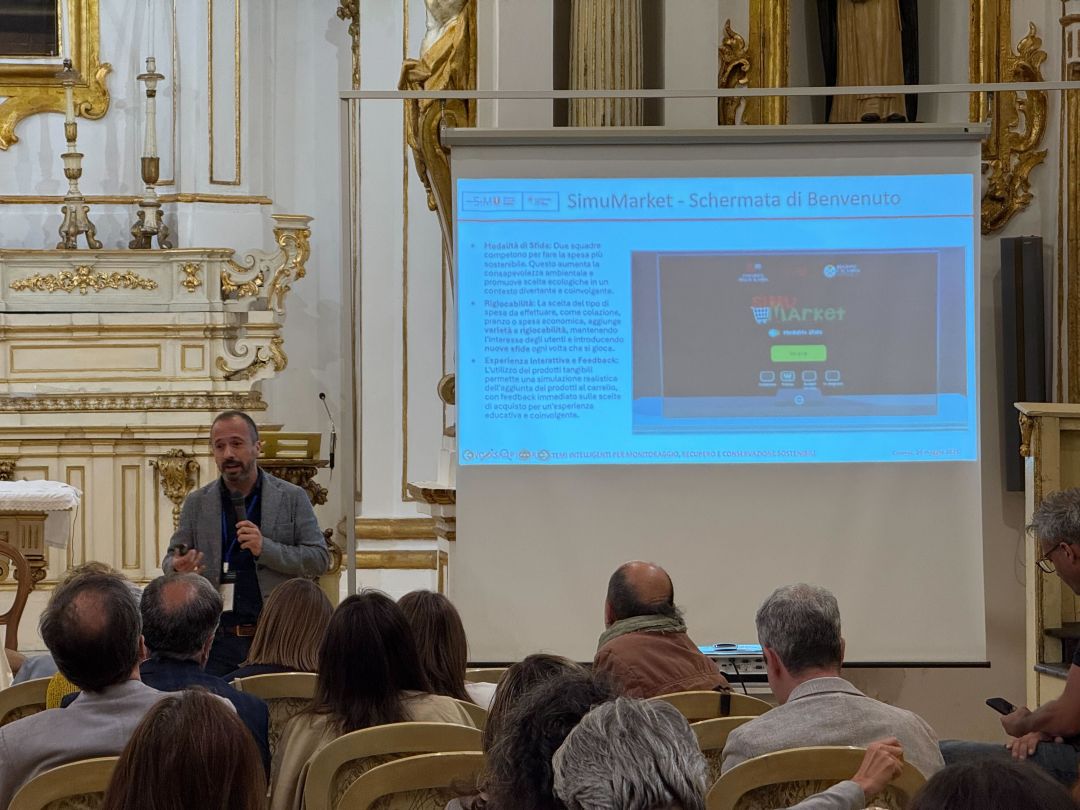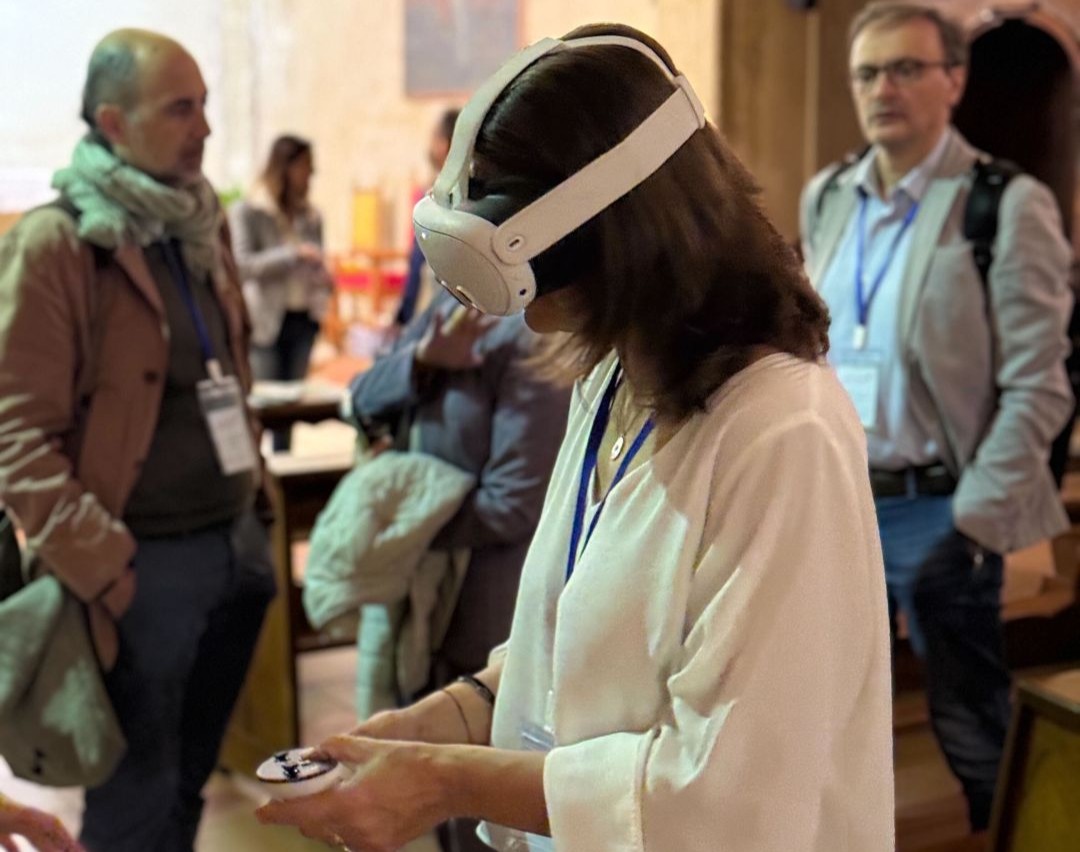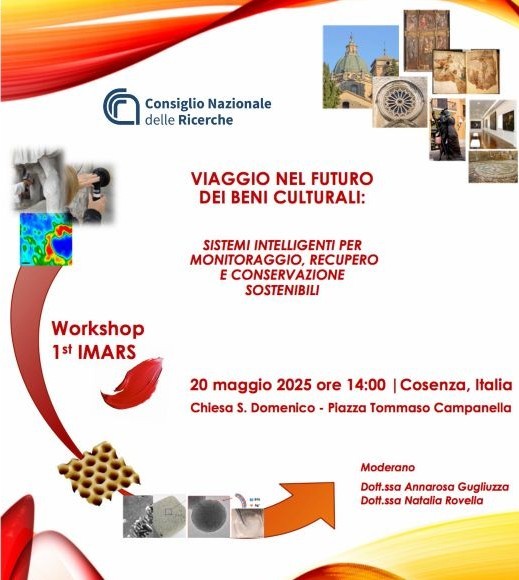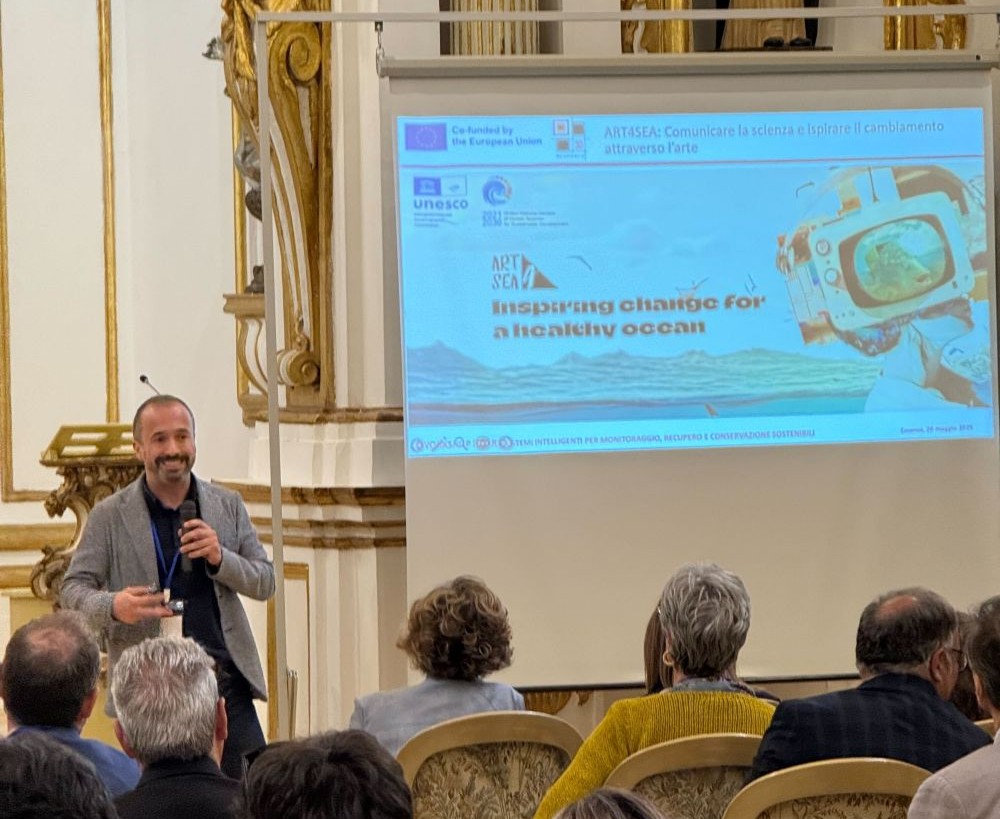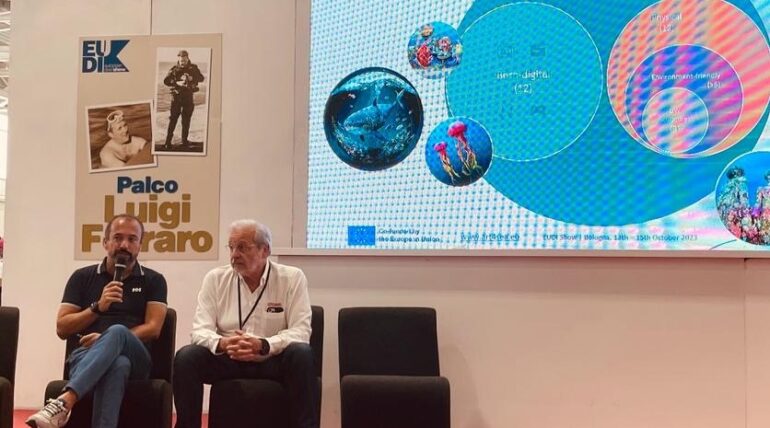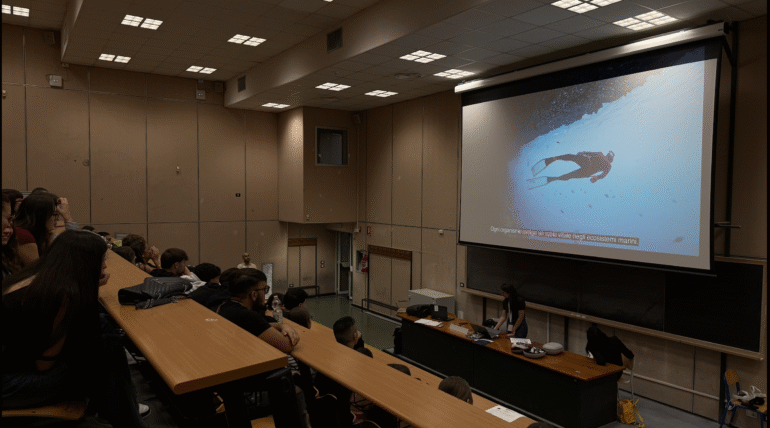
On May 20th, Art4Sea was presented at the IMARS workshop “A Journey into the Future of Cultural Heritage”, held at the Church of San Domenico, Cosenza.
The event was organized by CHross Lab, a task force operating within the Department of Chemical Sciences and Material Technologies (DSCTM) of CNR (National Council of Research). It focused on smart and sustainable strategies for non-invasive diagnostics, as well as the development of technologies aimed at supporting the restoration and preventive conservation of archaeological assets.
The workshop was attended by institutional representatives from local organizations, as well as companies whose core business is the development of non-invasive diagnostics and AIoT, and machine learning (ML) technologies.
During the session dedicated to the goals and challenges of safeguarding Cultural Heritage, Fabio Bruno, president of 3D Research, and coordinator of Art4Sea, presented the project as an inspirational tool to promote respect for marine environments and disseminate Ocean Literacy.
The presentation highlighted the progress already achieved within the project. Art4Sea has recently been officially endorsed as an activity of the United Nations Decade of Ocean Science for Sustainable Development (“Ocean Decade”), recognizing its valuable contribution to raising awareness through the intersection of art, science, and environmental education. The project’s effectiveness is supported by the success of last year’s artist residencies and the highly positive feedback received from activities conducted on the participating islands.
Building on these results, several new initiatives are set to unfold in the coming months. These include the opening of three Art4Sea exhibitions on the islands of Gozo, Alonissos, and Ustica, scheduled to take place between June and September 2025. Additionally, a series of awareness-raising events dedicated to younger audiences will be launched in autumn 2025, aiming to further promote Ocean Literacy and environmental responsibility among new generations.
The project’s objectives — fostering cooperation, inspiring change through art, creativity, science, and technology, and shedding light on the challenges involved in protecting both natural and cultural heritage — are fully aligned with the broader mission of the CHross Lab committee. The committee is committed to developing innovative and sustainable solutions for safeguarding Cultural Heritage and to organizing cultural initiatives that promote its value, actively involving students from primary and secondary schools, university and international PhD students.
The workshop brought together professors, restorers, museum directors, researchers and other professionals from the creative and cultural sectors, providing a valuable platform to explore innovative, sustainable and science-based solutions for the conservation of Cultural Heritage.
